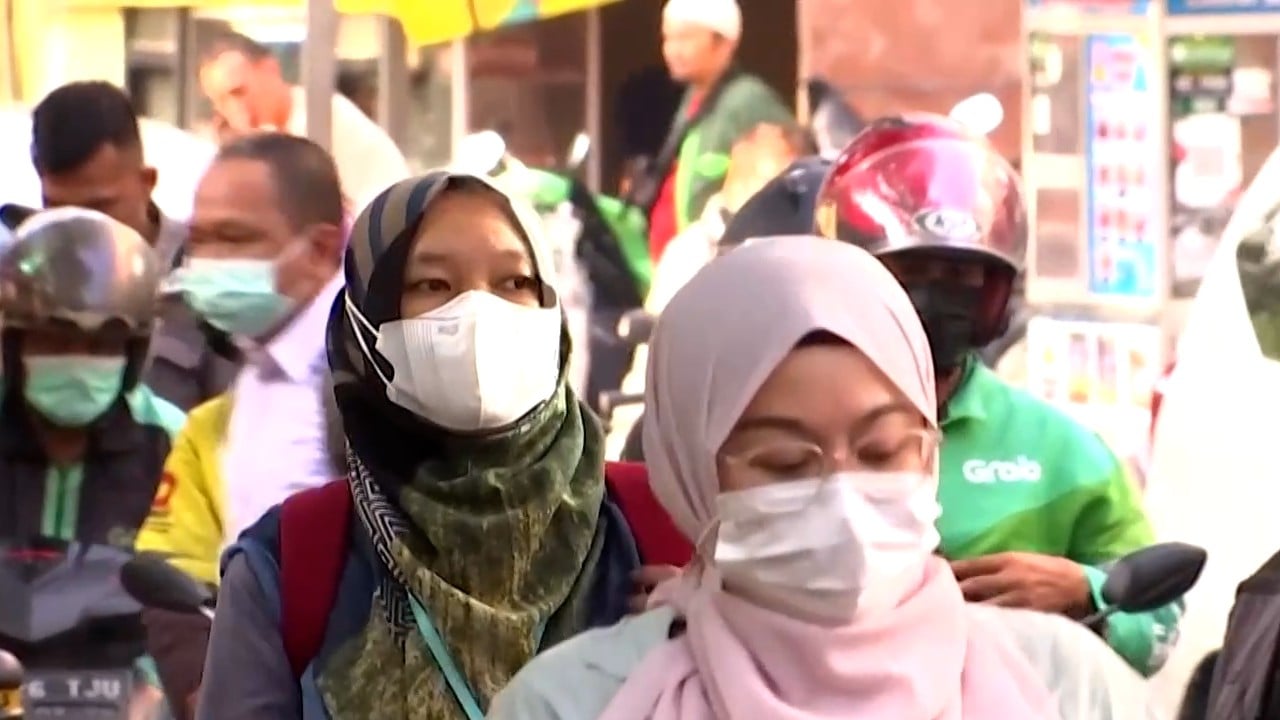Eko Prasetyo, a 26-year-old motorcyclist from East Jakarta, was among those fined by police during a random emissions test.
"I had to pay 250,000 rupiah ($16) because my bike had such bad emissions," he told Asia This Week. "That's more than I've done in one day. Now I'm gone."
The requirement to submit an emissions certificate before paying road tax is also not widely accepted.
This is embarrassing. said 38-year-old Fahmi Hidayat, a resident of Kebayoran, Jakarta. "Our taxes should be simplified. Do they need our money or not?"
In 2021, 39% of 103 million cars in Indonesia are registered without road tax.
Hidayat predicts that this new test will create new loopholes for officials to extort money from car owners.
"We also know that it is possible to "buy" a driver's license without passing an exam. So why not raise money for those who pass emissions tests?'
Jakarta's head of environment, Asep Kuswanto, defended the project, saying car owners could undergo free tests at city maintenance workshops to obtain emission certificates.
"We have to do our part for the environment. "This is a concrete step by the government to combat the increase in air pollution in Jakarta," he said.
Jakarta encourages train travel to reduce 'persistent' smog.
Jakarta encourages train travel to reduce 'persistent' smog.
"One of the main factors contributing to pollution levels in Jakarta is emissions from the growing number of cars in the city," Environment and Forestry Minister Siti Nurbaya said earlier this month.
The transportation sector accounts for about 97%, or the equivalent of 28,317 tons of carbon dioxide emissions per year, with power plants and other industries accounting for the rest.
But public policy expert and former member of parliament Bambang Haryo Soekartono disagrees and sees the cause of the fires in palm and eucalyptus plantations.
"The real cause of air pollution [in Jakarta] this season is the large number of forest fires that have broken out across the archipelago, which the ministry has not been able to prevent."
According to Soekartono, 5,000 hotspots producing hazardous air pollutants have been identified in Indonesia in recent years.
According to him, it is unfair that the government accuses citizens of emissions from cars or even industrial activities.
"This is a big failure on the part of the government when dealing with such a big problem as forest fires."
However, Soekartono argued that the "green economy" is not the path Indonesia should take.
Skepticism about government solutions resonates and is widespread in Indonesia, where suspicion, misinformation and mistrust permeate a culture of climate denial.
A 2020 YouGov public opinion poll found that 21% of Indonesians do not believe in global warming or climate change, the highest percentage of climate change deniers in the world.
Lukito Hermawa, a 45-year-old small businessman in Surabaya, where broadcast trials will begin next month, suggested larger economic motivations were at play.
"I think this is a part of foreign interests. Maybe they will force us to buy electric cars next time?'
While driving, Hermawan repeated the feel-good story that climate change is a "lie" created by developed and rich countries to make poor countries develop, adding that Indonesia should not "swallow" the "global obsession". . for green energy.
But even for 26-year-old Khofifah Andini, who believes in fighting global warming, checking car emissions is an unwanted "extra burden".
Andini, who has been riding a motorcycle for eight years, admitted that he cannot afford to buy a new bike if his old bike fails the test.
"The easiest solution is to bribe the police to turn a blind eye. It's wrong, I know, but what else can you do?'




